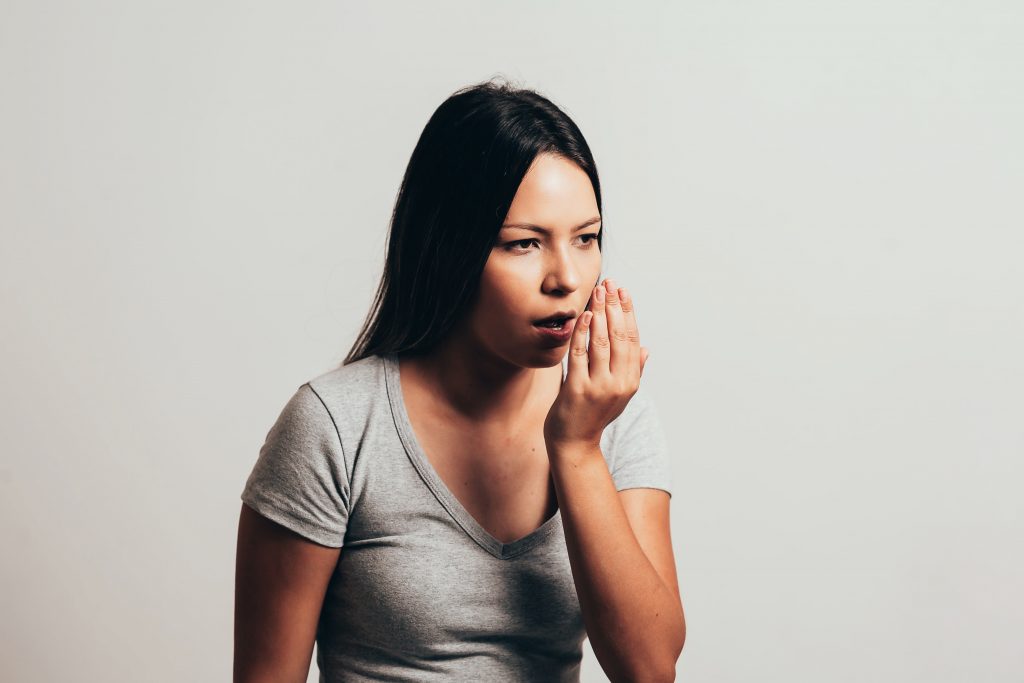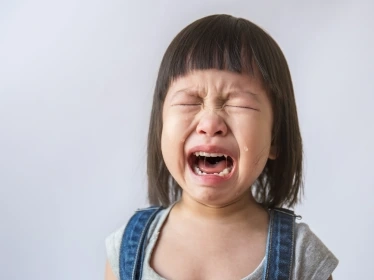
Bad breath is most commonly a sign of poor dental hygiene. That's why it's so important too brush your teeth regularly and keep your mouth clean! However, bad breath can also be caused by other reasons. Learn more about bad breath, what could be causing it, and how to get a fresher-smelling mouth!
Bad Breath (Halitosis)
Bad breath, also known as halitosis, refers to having a noticeably unpleasant smell on your breath, that others notice when you speak or breathe out. Bad breath is a very common problem which has many different causes.
What causes bad breath?
Poor oral hygiene and gum disease: Plaque and food remnants from what we eat build up in our mouth daily. These cause the bacteria in our mouth to multiply. If we don't regularly remove the bacteria by cleaning, they can give off unpleasant-smelling gases that cause bad breath.
Smoking: Smoking is a very common cause of bad breath, due to the presence of tobacco in cigarettes. As well as affecting the way your breath smells, smoking can also irritate your gums.
Teeth problems: Dental caries (cavities) and non-vital teeth (dead teeth to which blood does not flow) harbour large amounts of germs, which in turn causes bad breath even after thorough brushing and flossing.
Certain foods: Certain strong tasting foods like garlic, onion, and some spices can affect your breath as they are digested.
Dentures: If you have dentures and have bad breath, you may not be cleaning them properly. Ask your dentist for advice on cleaning dentures.
Crash dieting: Dieting, and especially crash dieting, forces the body to produce energy in different ways, by breaking down fat. When fat breaks down, it creates chemicals called ketones. Ketones have a strong or pungent aroma, which can be smelt on one's breath.
Some medical conditions, like tonsillitis or acid reflux, can also be a cause of bad breath.
How do you get rid of bad breath?
Brush and Floss Daily - Thorough oral hygiene twice daily with tooth brushing with a fluoridated toothpaste to remove food debris and plaque on teeth. You should also use a floss or an interdental brush at least once daily. Brushing alone only cleans up to about 60% of teeth surfaces.
Tongue Cleaning - You can use a tongue scraper or a tongue cleaner on the back of a toothbrush to clean the posterior region of the tongue, by moving it forward to the anterior section of the tongue
Watch your Diet - Limit the amount of strong tasting foods, and cut down on sugary foods and drinks.
Regular dental check-ups - Seeing your dentist regularly is important, at least 1-2 times a year. Your dentist can detect potential dental problems that cause bad breath. Regular scaling and polishing is also essential in maintaining gum health.
Denture Maintenance - If you wear dentures, remember to remove them every night and clean them thoroughly daily.
Mouthwash - Using mouthwash can also help with bad breath. Some contain antibacterial agents that can kill bacteria that causes your breath to smell unpleasant.
When should you see a dentist?
If you take the necessary measures, your bad breath should subside after a few weeks, however if that is not the case, or if you have any of the following symptoms, you should speak to a dentist.
- Bad breath that does not go away after treating it yourself for a few weeks
- Painful, bleeding or swollen gums
- Toothache or wobbly adult teeth
- Problems with your dentures
You would have an examination of your mouth by your dentist. In some cases the dentist may suggest an X-ray to look further at your teeth. Scaling and polishing may also be performed to remove build up or tartar that cannot be removed by homecare.
If you are having problems with bad breath, consult with our Healthway Dental dentists today!




